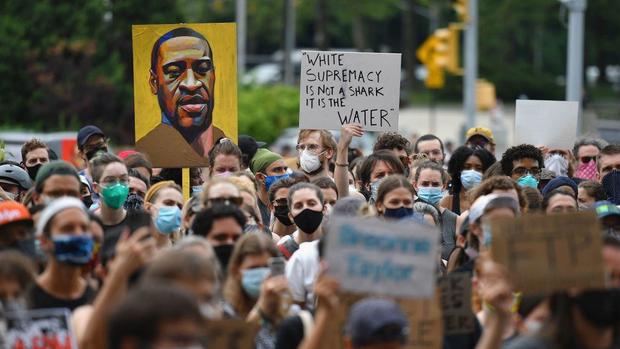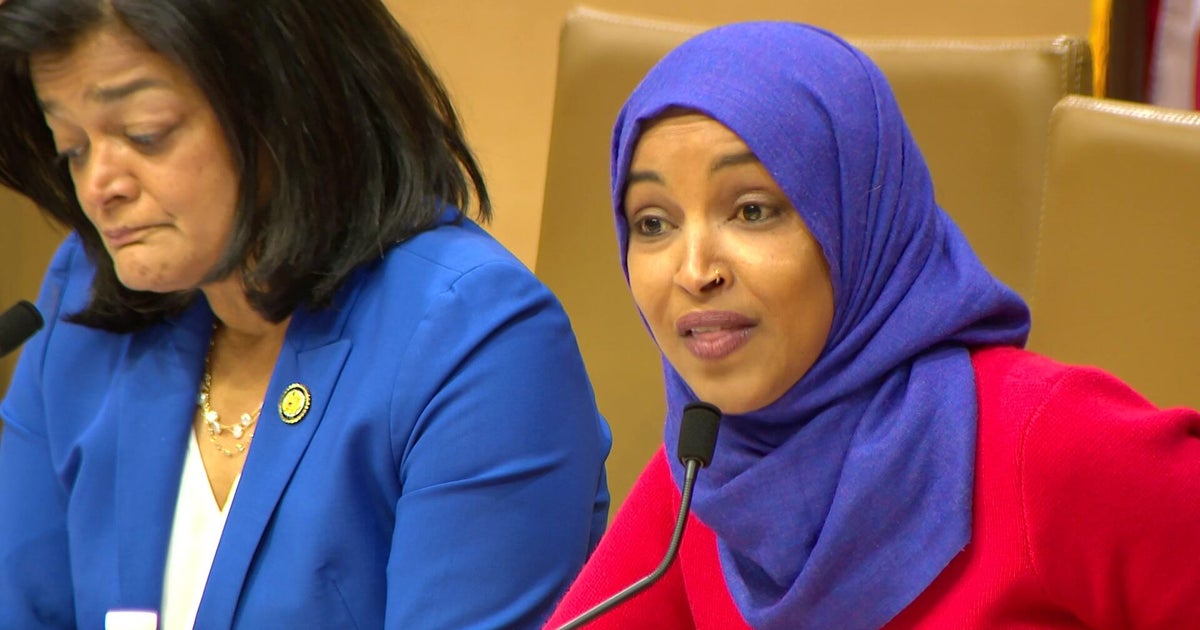House Democrats unveil police reform bill amid nationwide protests
House Democrats unveiled legislation Monday morning to offer a blueprint for reforming policing policies in what is expected to be a massive bill focusing on holding law enforcement officers accountable for any misconduct and increasing transparency. The bill comes amid nationwide protests in response to the death of George Floyd.
The bill, led by the Congressional Black Caucus, was announced in a press conference with House Speaker Nancy Pelosi, Senators Cory Booker and Kamala Harris, and other congressional Democrats on Monday morning. The bill is 136 pages, and includes reforms to make it easier to prosecute police officers for misconduct in civil court. Text of the bill, called the Justice in Policing Act 2020, was provided to CBS News by a House Democratic staffer.
Before rolling out their sweeping police reform measure, Democrats kneeled in silence in Emancipation Hall in the U.S. Capitol for eight minutes and 46 seconds to honor Floyd and other African-Americans who have died at the hands of law enforcement.
In an interview Monday with CBS News' Nancy Cordes, Congresswoman Karen Bass, chair of the Congressional Black Caucus, said she believes the groundswell of support for policing reforms demonstrates "this is a different moment in our country."
"Sometimes it takes a long time for things to change, but when it comes to this issue, what is very different this time is that you have an absolute rainbow of people who are out and in some instances in some cities, when I look at the television camera I have to look to find the African-Americans," she told CBS News. "There are people around the country now who understand this issue like never before. It used to be when when polls were done that people would say, 'I've never had a problem with police, so, I don't understand what the issue is.' I think we have finally crossed the bridge where people can say, 'It has not been my experience, but I understand it's yours.'"
Bass, a California Democrat, told reporters during a press conference earlier in the day that the package has more than 200 co-sponsors in the House and Senate.
"This moment of national anguish is being transformed into a movement of national action as Americans from across the country peacefully protest to demand an end to injustice," Pelosi said.
Senate Minority Leader Chuck Schumer urged Majority Leader Mitch McConnell to bring the bill to the Senate floor for debate and a vote before July.
"Americans who took to the streets this week have demanded change," he said. "With this legislation, Democrats are heeding their calls."
The bill would amend the requirement of intent in the federal criminal statute to prosecute police misconduct, by changing the standard of prosecution from "willfulness" to "recklessness." It would also reform qualified immunity, meaning that individuals would be able to recover damages when their constitutional rights are violated by law enforcement officers.
The bill aims to implement structural reforms at the Justice Department by granting the department's Civil Rights Division subpoena power. The bill would also incentivize state attorneys general to conduct pattern and practice investigations of local police departments, and provide grants for states to create structures for investigating police-involved deaths.
The legislation attempts to improve transparency by creating a National Police Misconduct Registry, and mandate state and local law enforcement turn over data on use of force broken out by race, gender, disability, religion and age.
The bill also aims to address cultural biases in police stations by mandating racial training. It would also change the standard for evaluating whether use of force was justified. Currently, officers only need to prove that use of force was reasonable. The bill would change the standard so that officers need to prove that use of force is necessary. The bill would also require that federal law enforcement officers wear body cameras, and limit transfer of military-grade equipment to state and local law enforcement.
It would ban no-knock warrants in drug cases, meaning that police officers could not barge into people's homes without knocking first. Protesters have called for ending the practice after police officers in Louisville, Kentucky, shot and killed Breonna Taylor in her bed after entering her home on the basis of a no-knock warrant. The bill would also ban police chokeholds. Floyd died after he was pinned down by a police officer with a knee to his neck for nearly nine minutes.
The bill includes a section that makes lynching a hate crime, after the Senate failed to pass an anti-lynching bill last week. It is unclear whether this package would receive support in the Republican-controlled Senate.
Some protesters have called for defunding police departments, but the House bill does not include any funding specifically for police departments and instead would implement grants to community organizations with the aim of building partnerships which allow for greater accountability.
Bass told CBS News she does not support stripping police departments of their funding and instead backs "the need to address the problems in communities." The legislation, she said, does make an investment in policing, though not with new money.
"I think the movement around defunding the police, again, understanding that it is pushing for addressing community problems and addressing the root causes, I think that it can be used as a distraction," Bass said. "But to me, that is not as significant because the people that want to distract away from this movement are going to use anything, they're going to call for law and order, they're going to say there's a terrorist element involved. And so I am not going to be distracted by their attempt to distract what I believe are legitimate concerns that community activists are raising."
The California Democrat called the amount of support the measure has already received, with roughly 200 lawmakers on board, a "darn good start."
"I don't believe that police officers want to be in a situation where when they see another officer doing something wrong, is corrupt, abusing the public, I don't think that police officers want to work in an environment where they can't do anything, they can't say anything, they have to go along with something," Bass said. "And so hopefully this will provide support in terms of changing police culture, so that police departments don't shield folks that they know are problematic."
President Trump has accused former Vice President Joe Biden, the Democratic nominee, of supporting calls to defund police departments, although Biden's campaign said in a statement Monday the former vice president "does not believe that police should be defunded." In a speech last week, Biden called for chokeholds to be eliminated and for police training to be improved, and he committed to creating a police oversight board in his first 100 days in office if he is elected in November.
Melissa Quinn contributed to this report.






